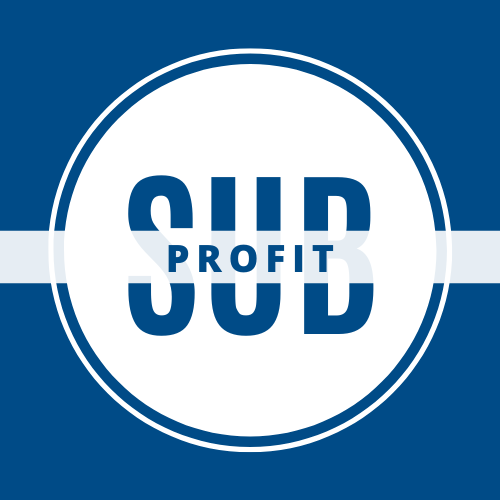How to start a profitable business during difficult economic times in 2023
It can be challenging to start a profitable business during difficult economic times, as there may be less disposable income and a higher level of uncertainty among consumers. However, there are still many opportunities for businesses that are able to adapt and find ways to meet the needs of their customers. Some potential strategies for starting a profitable business during difficult times include:
- Focus on providing essential goods or services: During difficult times, people are often more focused on their basic needs and may be willing to pay a premium for goods or services that are essential for their well-being or survival. Consider starting a business that provides essential goods or services, such as food delivery, home repairs, or health and wellness products.
- Look for opportunities in niche markets: It may be more difficult to compete in crowded, saturated markets during difficult times. However, there may be opportunities to serve niche markets that are less impacted by economic downturns. Look for ways to differentiate your business and meet the specific needs of a particular group of customers.
- Offer value-added services or products: In order to attract and retain customers during difficult times, it may be necessary to offer value-added services or products that go beyond the basic offering. Consider offering added convenience, personalized service, or other value-added features that will make your business stand out.
- Explore online and digital channels: In the current economic climate, it may be more difficult to rely on traditional brick-and-mortar sales channels. However, there are many opportunities to sell products or services online, through e-commerce platforms or social media. Consider how you can use digital channels to reach and engage with customers.
- Keep costs low: In order to maximize profits during difficult times, it is important to keep costs as low as possible. Look for ways to streamline operations, minimize expenses, and make the most of your resources.
Ultimately, the key to starting a profitable business during difficult times is to stay flexible, adapt to changing circumstances, and constantly look for new opportunities to meet the needs of your customers.
There are several types of businesses that may be profitable in difficult economic times:
- Essential goods and services: Companies that provide essential goods and services, such as grocery stores and pharmacies, tend to do well during difficult economic times because people still need these items.
- Online businesses: With more people staying at home and shopping online, e-commerce businesses may be able to thrive in difficult times.
- Home repair and maintenance: As people look to save money, they may be more likely to try to fix things themselves or hire someone to do it for them rather than buying new items. This can create opportunities for businesses that offer home repair and maintenance services.
- Virtual services: With more people working from home, there may be increased demand for virtual services, such as online tutoring, consulting, or therapy.
- Budget-friendly products or services: In difficult economic times, people may be more likely to look for budget-friendly options. Businesses that offer lower-cost products or services may be able to attract more customers.
- Self-care and wellness: People may be seeking ways to manage stress and take care of their physical and mental health during difficult times. Consider starting a business that provides self-care and wellness products or services.
It’s important to carefully research and plan any business venture, and to be prepared for challenges and changes in the market. It may also be helpful to seek guidance from a financial advisor or mentor.
Business trends during difficult economic times in 2023
During difficult economic times, businesses may need to adapt and change in order to stay competitive and survive. Some trends that businesses may follow during these times include:
- Cost-cutting: Businesses may need to reduce expenses in order to stay afloat. This could involve layoffs, reducing employee hours, or finding ways to streamline operations. This could involve also cutting back on non-essential expenses, such as marketing or travel, or reducing the size of the workforce through layoffs or hiring freezes.
- Diversification: Businesses may need to diversify their products or services in order to appeal to a wider customer base and generate more revenue. This could involve entering new markets or offering new products and services that meet the needs of customers.
- Innovation: Businesses may need to come up with new and creative solutions in order to stay ahead of the competition. This could involve developing new products or services, or finding new ways to deliver existing ones. Economic downturns can be a catalyst for businesses to innovate and find new ways of operating. This could involve adopting new technologies or processes that improve efficiency and reduce costs.
- Collaboration: Businesses may need to work with other companies or organizations in order to survive. This could involve partnering with other companies, forming strategic alliances, or sharing resources.
- Online presence: In the digital age, it is increasingly important for businesses to have a strong online presence. This could involve building a website, using social media, or utilizing e-commerce platforms.
- Customer focus: In tough economic times, businesses may need to prioritize customer satisfaction in order to retain their business and attract new customers. This could involve offering promotions or discounts, improving customer service, or creating loyalty programs.
- Digital transformation: Many businesses are turning to digital technologies to reach customers, improve efficiency, and reduce costs. This might involve investing in e-commerce, shifting to remote work, or adopting new software and tools.
Overall, the key for businesses during difficult economic times is to be flexible and adaptable, and to find ways to meet the changing needs of their customers.
Profitable niches during difficult economic times
During difficult economic times, it can be challenging for businesses to remain profitable. However, some niches may be more resilient to economic downturns than others. Here are a few examples of niches that may be more likely to be profitable during difficult economic times:
- Essential goods and services: People will always need certain goods and services, regardless of the state of the economy. This includes things like groceries, healthcare, and personal hygiene products.
- Discount and budget-friendly options: During economic downturns, people may be more inclined to shop for discounted or budget-friendly options. Businesses that offer these types of products or services may be more likely to thrive.
- Online and digital services: With more people staying at home and relying on the internet for entertainment, education, and other necessities, businesses that offer online or digital services may be more likely to be profitable.
- Home improvement and repair: As people are spending more time at home, they may be more inclined to invest in home improvement and repair projects.
- Virtual and remote services: With the rise of remote work, businesses that offer virtual or remote services, such as online tutoring or consulting, may be more likely to be profitable.
It’s important to note that these are just a few examples and that the most profitable niches will vary depending on the specific circumstances of an economic downturn. It’s always a good idea to carefully research and consider the needs and demands of your target market before starting a business.
During difficult economic times, it can be challenging to find profitable niches, as consumer spending may decrease and businesses may struggle. However, there are some niches that may be more resilient to economic downturns or even see increased demand during these times. Here are a few examples:
- Essential goods and services: During economic downturns, people may prioritize purchasing essential goods and services, such as food, healthcare, and home maintenance.
- Online education: With more people staying at home and looking for ways to learn and improve their skills, the demand for online education may increase.
- Virtual events and services: With social distancing measures in place, there may be a greater demand for virtual events and services, such as online concerts, fitness classes, and therapy sessions.
- At-home entertainment: As people spend more time at home, there may be increased demand for at-home entertainment options, such as streaming services, board games, and craft kits.
- Home improvement and maintenance: With more people spending time at home, there may be increased demand for home improvement and maintenance services, such as cleaning, landscaping, and home repairs.
It’s important to carefully research and consider the potential demand for a niche before starting a business, especially during difficult economic times. It may also be helpful to pivot or adapt your business model to meet the changing needs of consumers.
Order our book “Subprofit. 108 Profitable Business Ideas For 2023”
Need more information – write to us: connect@subprofit.com


